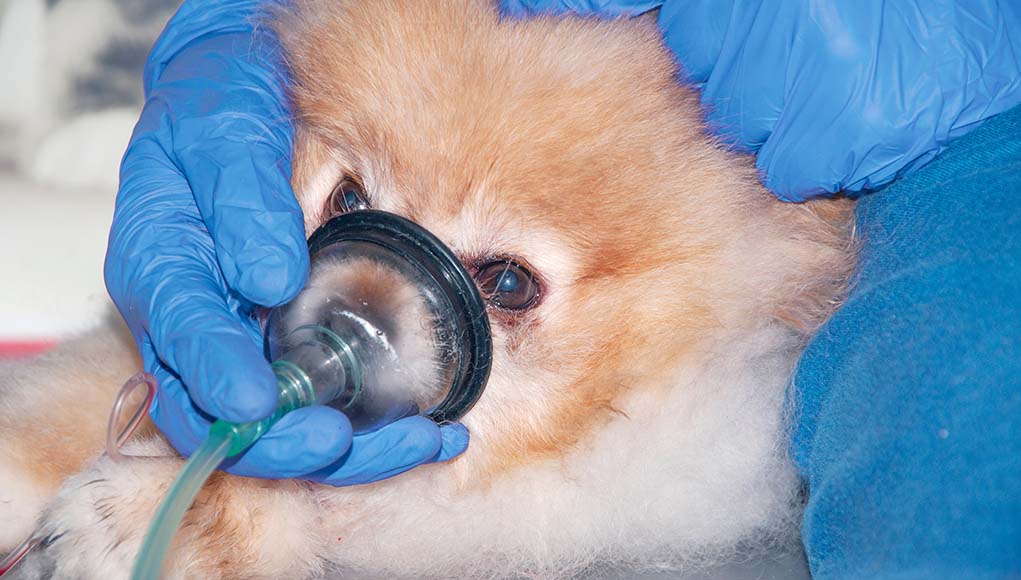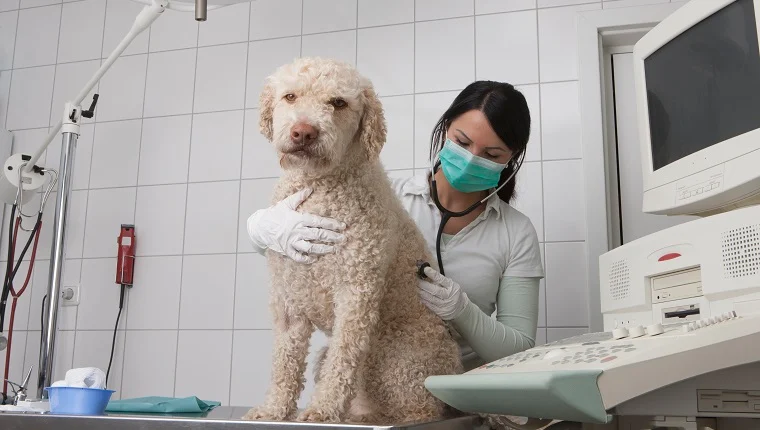Breathing difficulties in dogs affect all breeds and ages, and they can quickly turn fatal. If your dog is experiencing trouble breathing, you should take him to the doctor as soon as possible. The respiratory system is responsible for taking in oxygen and delivering it to the red blood cells and other organs in your dog’s body.
Breathing difficulties in dogs can affect dogs of all ages, breeds, and genders; however, certain breeds and types of dogs are more prone to specific underlying causes of Breathing difficulties in dogs. Cardiomyopathy and congestive heart failure are more common in really large and enormous dog breeds. Tracheal collapse is more common in little, toy-type dogs.
It’s not always easy to tell the difference between a dog who is breathing regularly and one who is having difficulty breathing. Healthy dogs should have a resting respiratory rate of 20 to 34 breaths per minute, and they should not appear to be straining to breathe. Of course, regular variables such as warm temperatures, exercise, stress, and excitement can cause dogs to breathe more quickly and/or deeply.

Rapid breathing or panting are also common responses to effort or heat; if this is the case, give your dog some time to relax and cool down to see if her breathing returns to normal. Dyspnea (difficulty breathing), tachypnea (rapid breathing), panting, and coughing are all symptoms of serious underlying disorders that should be treated as emergency situations if they persist.
Table of Contents
Causes of Breathing Difficulties in dogs
The cause of breathing difficulties in dogs includes the following
Dogs with tachypnea (rapid breathing)
- Low blood oxygen levels (hypoxia)
- Low red blood cell levels (anemia)
- Blood clots in pulmonary vessels
- The causes of dyspnea in dogs can also produce tachypnea.
Panting
- Pain
- Anxiety
- Medications
- Excessive body heat (fever or during exercise)
- Obesity
- High blood pressure
- High thyroid hormone levels
- Metabolic acidosis (when the body produces too much acid or can’t eliminate it appropriately)
- Some causes of dyspnea and tachypnea in dogs can also cause panting.
Dyspnea
- Foreign object lodged in throat
- Elongated soft palate
- Small nostrils
- Ascites, or fluid in the belly
- Bloat, or air in the belly
- Enlarged liver
- Bacterial or viral infection
- Tumors
- Allergies
- Asthma
- Injury to the chest wall
- Pulmonary edema, or heart failure with fluid in the lungs
- Blood in the chest around the lungs
- Bleeding into the lungs
- Pneumonia
- Infectious tracheobronchitis, or kennel cough
Symptoms of Breathing difficulties in dogs
Breathing difficulties in dogs- when dogs have problems breathing, they may exhibit a variety of symptoms depending on the nature of the health problem and its severity.

Dyspnea in Dogs
- When breathing, the chest wall and sometimes the abdomen will move more than normal
- Nostrils may flare open
- Breathing with an open mouth
- Breathing with elbows extending out from the body
- Neck and head held low and out in front of the body
- Noisy breathing
Tachypnea in dogs
- Rapid breathing.
- Your breathing rate is higher than usual.
- Breathing is generally shallower than usual, with the mouth closed or slightly open but not as wide as when panting.
Panting
- Breathing faster than usual with an open mouth
- Shallow breaths
- Tongue protruding
Diagnosis of Breathing difficulties in dogs
Breathing difficulties in dogs should be treated as an emergency, so you should take your dog to the veterinarian as soon as you notice a problem. Because there are so many potential explanations for breathing difficulties in dogs, it’s critical that you provide a detailed account of the symptoms and when they first appeared, as well as any recent episodes that may be relevant.
During the examination, your veterinarian will pay close attention to how your dog breathes and listen to his chest for specific noises that could indicate a problem. The color of your dog’s gums will also be assessed, as the color of the gums can indicate whether or not your dog has appropriate blood flow and oxygenation. A complete blood count, metabolic profile, fecal examination, urine analysis, and chest X-rays are some of the initial diagnostic tests for dogs that are experiencing problems breathing. Additional tests and procedures may be required.

Depending on the circumstances, they may involve ultrasound imaging, an electrocardiogram, specialized blood tests, fluid sample analysis, rhinoscopy or bronchoscopy operations, and tissue biopsies.
Treatment of Breathing difficulties in dogs
Treatment options are numerous and will vary depending on the diagnosis. Your dog’s requirement for prescription pet drugs and procedures will be determined by the origin and severity of the respiratory problem. Your dog’s activities will be limited until the breathing problem has been adequately addressed.
Continuing oxygen therapy to stabilize your dog while the fundamental cause of the breathing difficulty is addressed is a common treatment. If there is any fluid in the space around the lungs, it may need to be drained using a needle, which is known as thoracentesis. Heart failure patients may benefit from diuretics.
It is critical to seek treatment as soon as possible because the sooner your dog receives oxygen therapy and drugs, the sooner you will be able to avoid and reverse impaired functioning and probable organ damage caused by a lack of oxygen.
The prospect for dogs who are having trouble breathing is determined by the underlying cause. If you detect any changes in your dog’s respiratory pattern, you should contact your veterinarian.
RECOMMENDED ARTICLES
- Komondor Dog – Characteristics, Behaviour, Caring, And Health
- Kuvasz Dog – Characteristics, Behaviour Caring And Health
- 22 Basic Causes of Dog Vomiting, Symptoms, And Treatment
- 10 Best Natural Dog Food For Healthy Living And Nutrients
- Great Pyrenees Dog – Characteristics, 3 Comprehensive Behaviour, And Health
If you like, please share it, sharing is usually caring.




